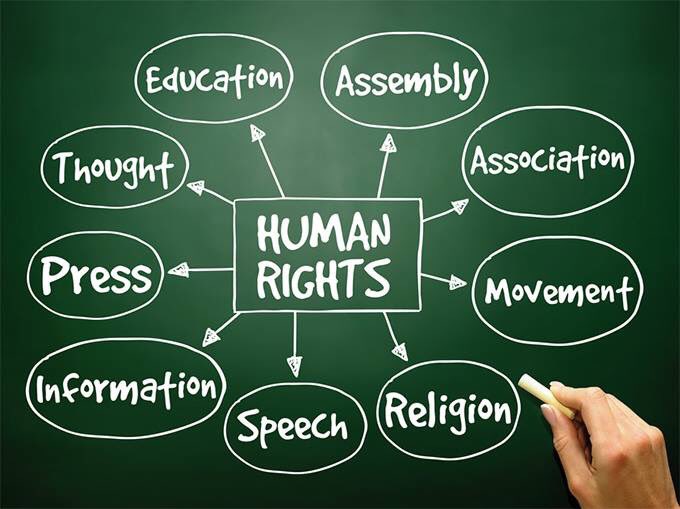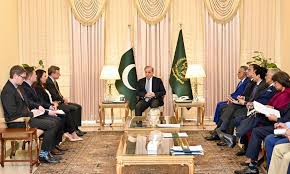10 Facts About Human Rights in Pakistan

Pakistan, cushioned between India and Afghanistan, is home to more than 212 million people and is the sixth most populous country in the world. Each one of these people living in Pakistan should be given basic human rights no matter their ethnic origin, color, gender, religion or any other reason.
Even if human rights should be granted to everyone, not everyone is given the same rights as the other in some countries around the world. There is much to know how each human is treated or could be treated in the country of Pakistan. Here are 10 facts on human rights in Pakistan.
10 Facts On Human Rights in Pakistan
Attacks on civil society. A civil society is a community of citizens linked by common interests, and in Pakistan some aspects of civil society are under attack. For instance, an attack on a school killing 140 people, mostly children, made those among the positive civil society in Pakistan protest against the government for supporting the “good” Taliban. When these protests arose, so did the safety concerns of Pakistan’s civil society. These people were attacked with laws and organizations put against them.
Freedom of religion. In 2017, there were at least 19 people on death row under blasphemy charges, many of whom were members of religious minorities in Pakistan. This situation, combined with many others, has put Pakistan at a severe level of ‘violations of religious freedom’ — religious minorities and atheists are at a higher risk than ever before.
Children’s rights. Child marriage is a major concern in Pakistan, with 21 percent of girls under the age of 18 already married. Along with child marriages, lack of education also heavily impacts children in Pakistan. There have been many attacks on the school, and children are frequently used in suicide bombings. Unfortunately, roughly five million children are not able to attend school in Pakistan.
Women’s rights. Many women in Pakistan face rape, acid attacks, domestic violence and “honor” killings. It is estimated that there are about 1,000 “honor” killings a year on Pakistani women. If a woman is accused of adultery, fornication or an immoral behavior that violates societal and religious norms, she is then subjected to an “honor” killing.
Refugees. Pakistan is host to the largest refugee population in the world. According to UNHCR, there are more than 1.45 million refugees in Pakistan, many of whom are from Afghanistan. In many areas, the Pakistani police have extorted money from registered and undocumented refugees from Afghanistan. Between January to August in 2017, up to 82,019 Afghan refugees returned or were deported back to Afghanistan.
Terrorism. Many security forces in Pakistan are linked to terrorist intentions. Many times when suspects were to be charged, there were serious violations regarding torture and secret detention centers. Many of those who are detained were activists and human rights defenders.
Forced Disappearances. Many minority groups are under attack in Pakistan, and forced disappearances can occur. In 2017, the government received 868 new cases of forced disappearances, a figure which is more than the previous two years. The government was able to locate 555 of those who had disappeared, but there are still 313 people missing.
Freedom of expression. Many journalists, bloggers and social media users have been attacked in relation with Pakistan. For instance, there were five bloggers whose comments online led to forced disappearances. Four of the five bloggers were later released, but two of them said that they were tortured while in custody. The fifth blogger has still not been unfound.
Human rights defenders. Whether lawyers, bloggers, journalists or activists, voices of truth are often subjected to harassment, threats and forms of violence. In 2016, the Pakistani government argued that human rights defenders did not warrant special legal status and the protection of human rights defenders was a conspiracy by western countries to interfere in domestic affairs in developing countries.
A glimpse at progress. It may seem that human rights in Pakistan is lacking, but there have been some instances of progress over the years. In Punjab, Pakistani authorities are now accepting marriage licenses in the Sikh community, giving union protections under the law. Another progression in human rights for Pakistan is restoring section 7 of the Christian Divorce Act. In this section, Christians who wish to divorce can do so civilly without the threat of false accusations of adultery. Despite the many downfalls on human rights for women, there was an increase of 3.8 million women able to vote in the most recent election compared to 2013.
Postive Push
While there may be progress budding in regard to human rights in Pakistan, the road to completely improved human rights will be long and difficult. If those pushing for their rights are heard and supported, the return of basic human rights and safety can return to Pakistan.





